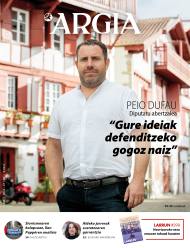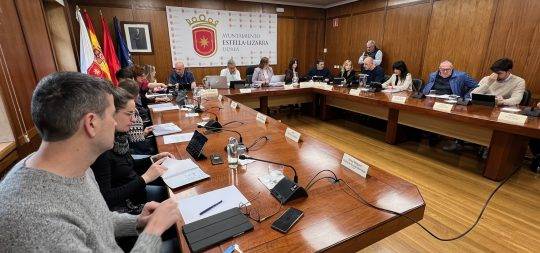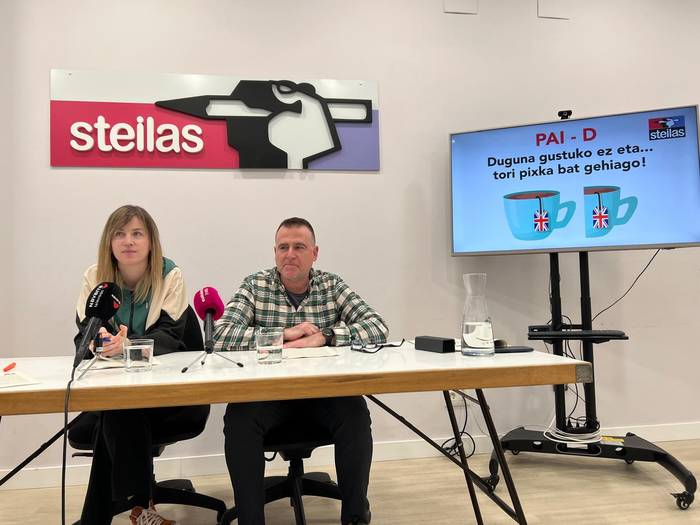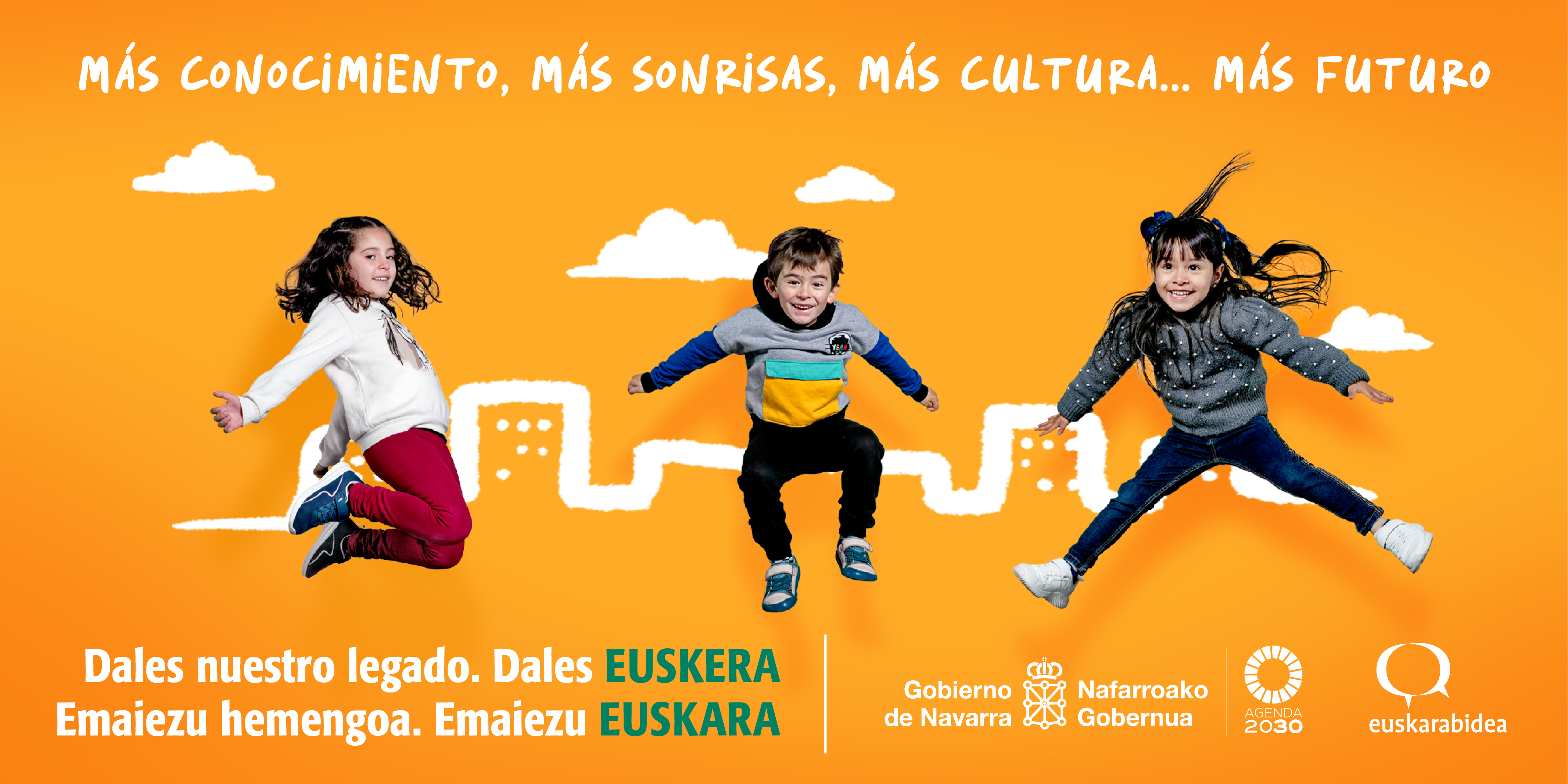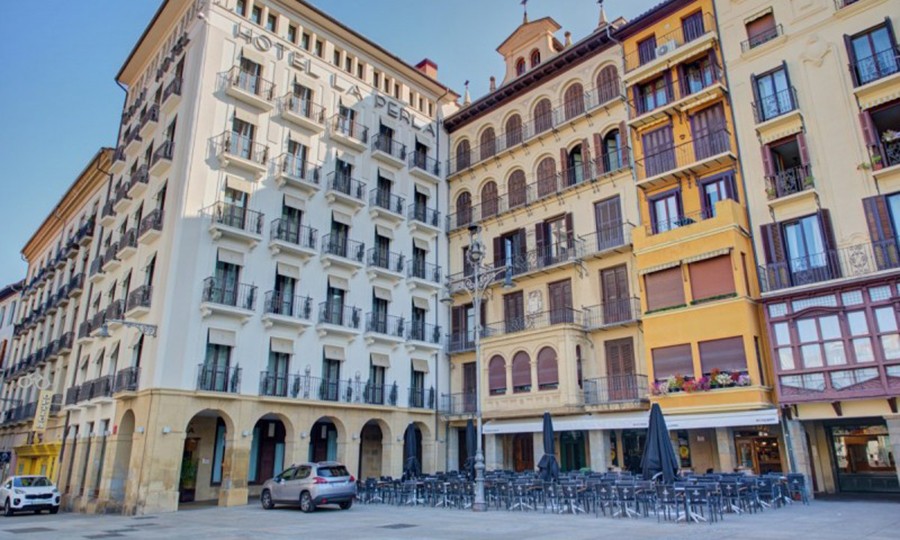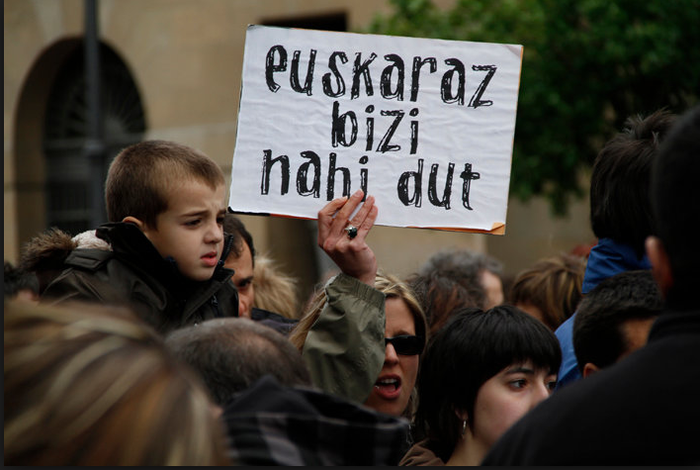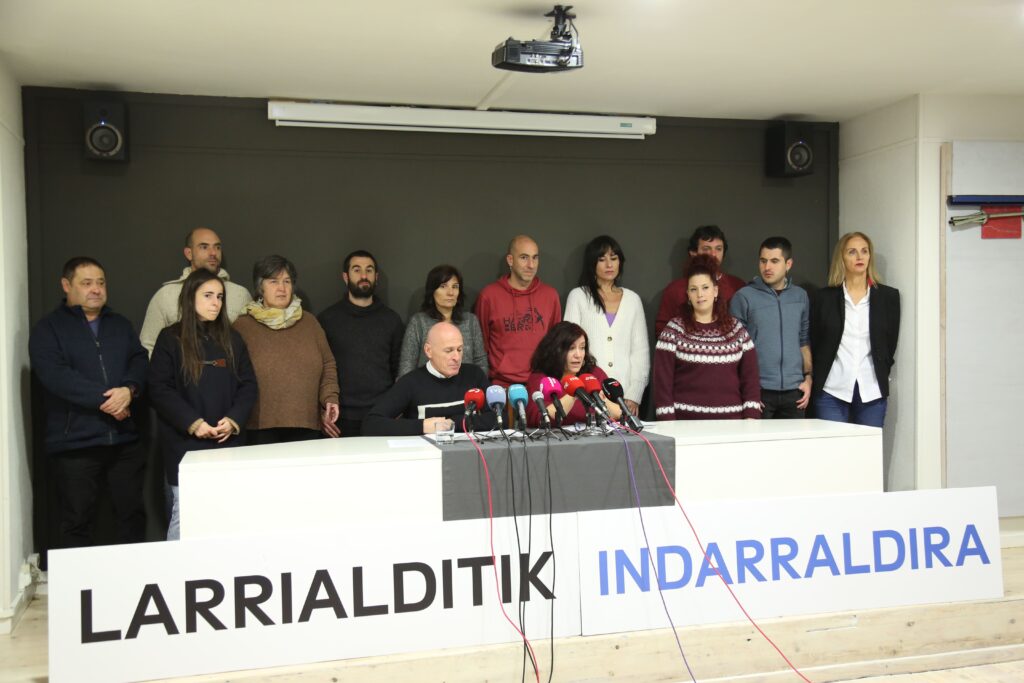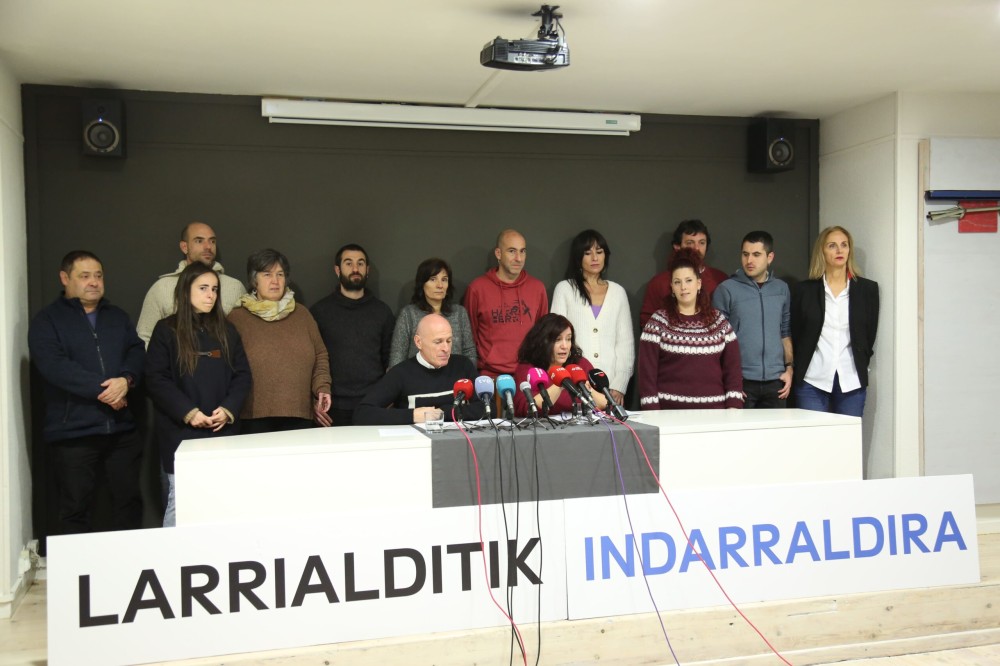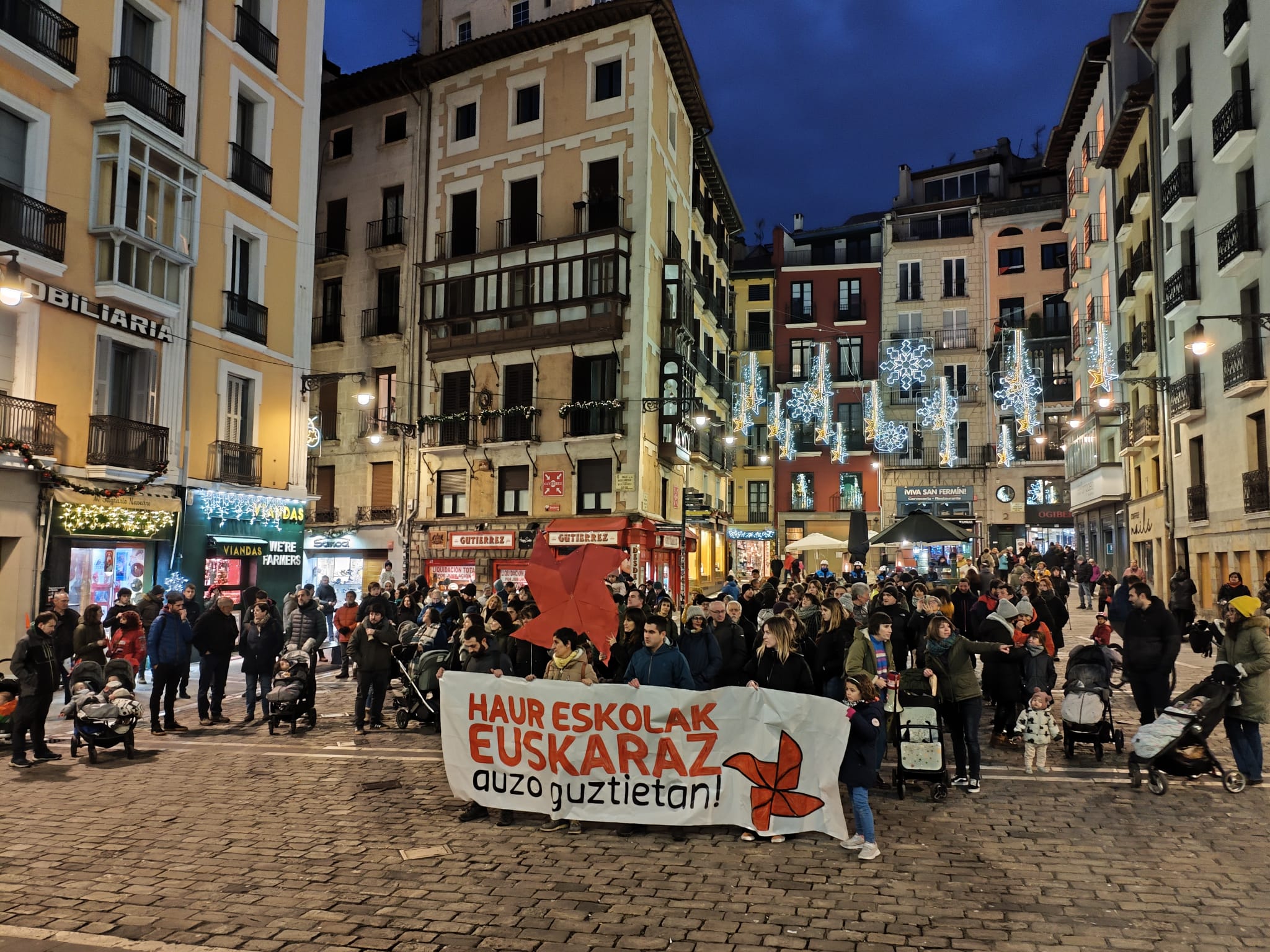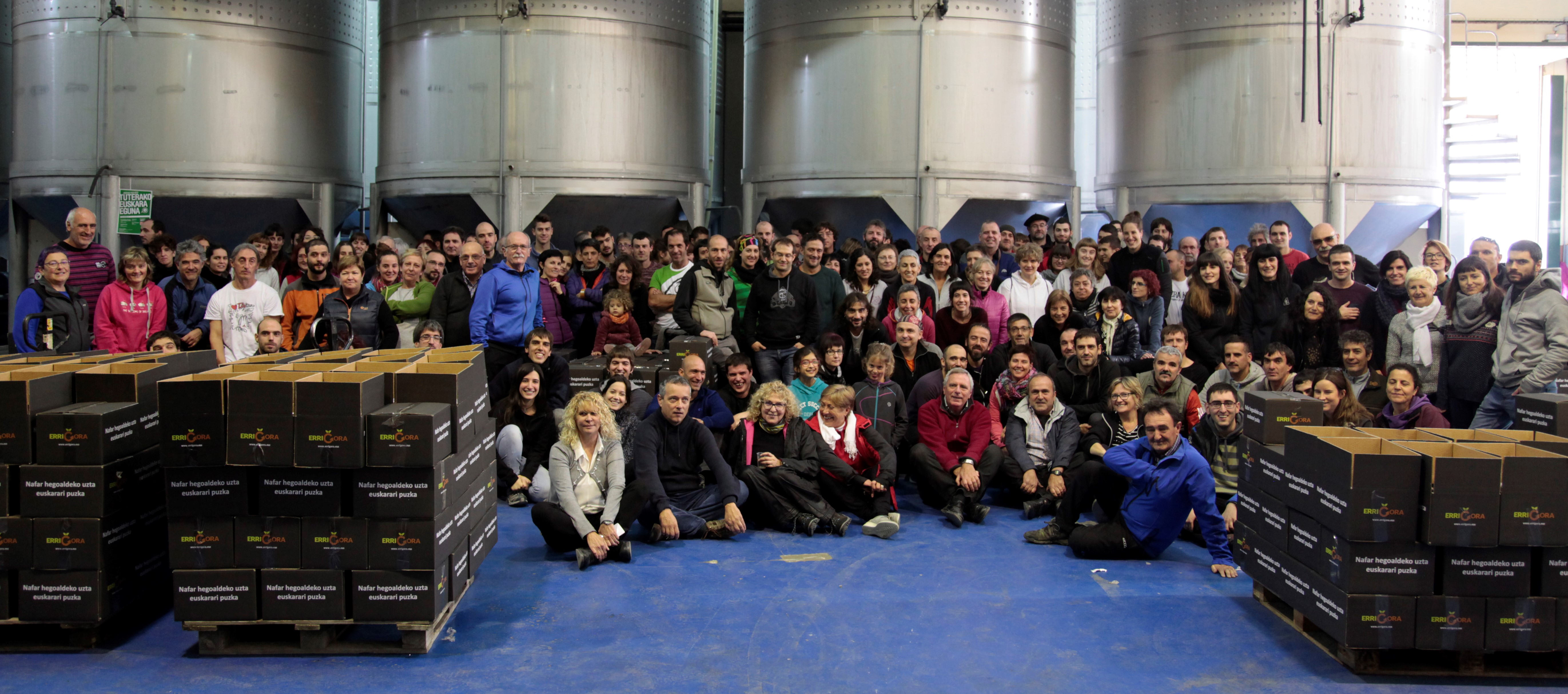Need to increase positive attitudes
- The members of the Euskaltzaleen Topagunea have detected disturbing data on the attitudes being carried out to promote the Basque country. Therefore, through research "increasingly favorable in society", new strategies have been developed to bring citizens closer to Euskera. That is what they said at the Increasingly Favouring Conference in Navarre in April in Pamplona/Iruña.
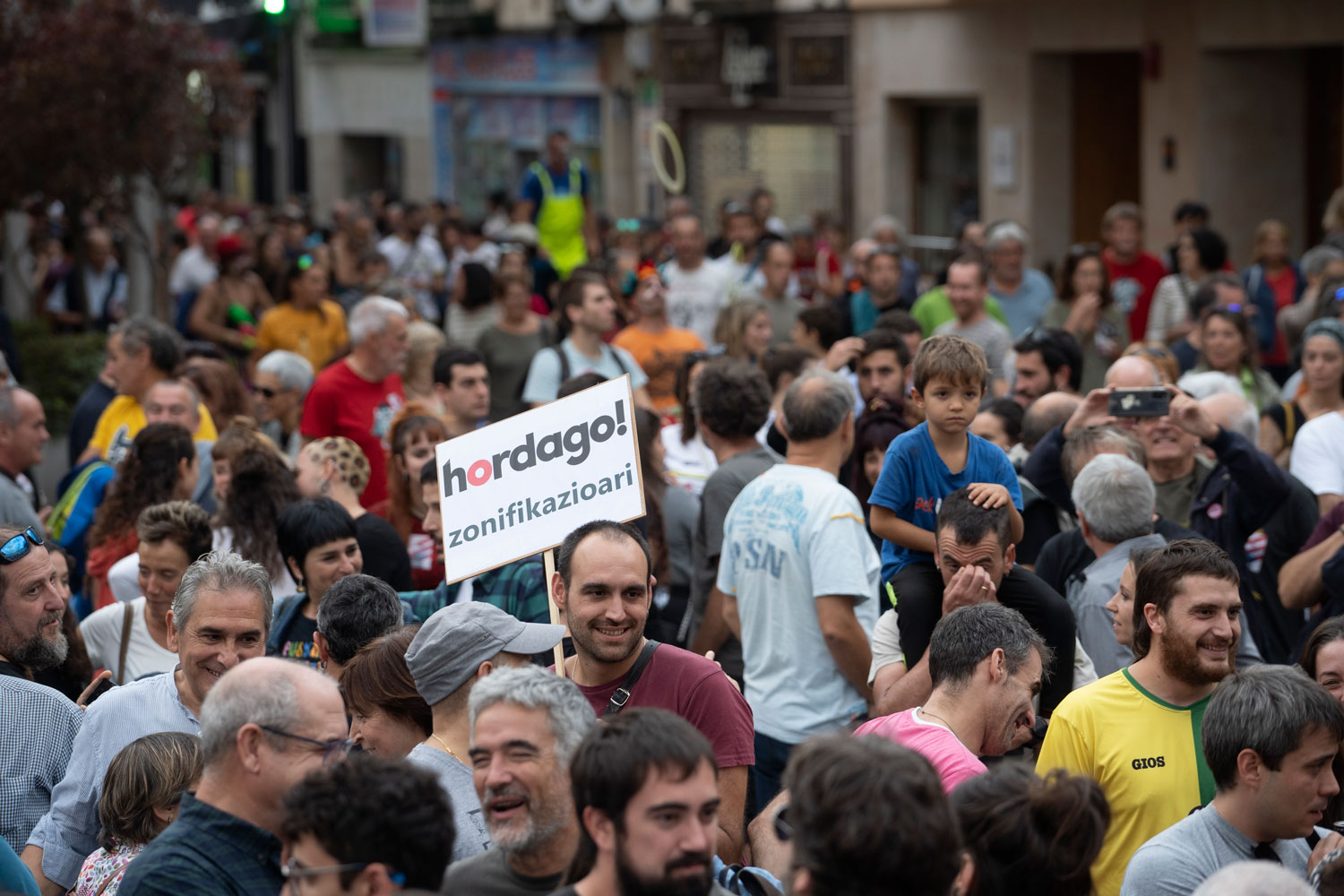
Euskaltzaleen Topagunea has put on the table disturbing data: the Basque needs more in favour. Sociolinguistic surveys conducted in 2021 indicate that in the positions on the promotion of the Basque Country in Navarre, 30% were favorable, 33% not in favor or against and 37% against. This and the “ambushed” use of the Basque Country have created concern in the Basque Country Topagunea. Therefore, the aim of the initiative is the recovery of the Basque Country. Oskar Zapata, director of Topagune in Navarra, stressed that it is an "important" factor to have the support of "the majority of society". Therefore, in recent years has been working on the study of favorable attitudes to euskera.Para this, in
2021 they decided to form a group of eleven people: one third have been professionals of the Basque world and two thirds, Euskaltzales who work outside it, such as sociologists, journalists, writers and anthropologists. For two years they have been dedicated to analyzing the “main conflicts” that arise around the Basque country. Some clashes have been identified and issues such as that 60% have no contact with the Basque Country, that the use of model D is “scarce” and that outside the classroom the students have “little” contact with the Basque Country; that the ruling class has “great influence”, “homogeneity” of the Basque community, consequences of zoning, limits of the law, clashes national identities and criticisms.
Many activities have been carried out since then: In autumn 2021, a conference was organised in which some 100 people participated. In the spring of 2022, 25 contrast forums were held and in early 2023 sixteen erdaldunes were formed, among them, newcomers to Navarre, members of social movements, the Ribera and the Region of Pamplona. Starting in March 2023, individual activities have been carried out with socio-political actors. And finally, the days of April this year.
Key “complementary” ideas With the
information gathered in the report, the report More and more for society has been published. Iñaki Sagardoi, a former Topagune worker and project member, stressed that his goal is to turn into “accomplices” a part of society beyond the Basque group: “Our intention is to provide key ideas that can be useful and complementary. We don’t come to replace the practices that have been
done so far.” To this end, they have proposed key ideas based on equality, diversity, sustainability and care. Sagardoi stressed that the promotion of the Basque Country is a commitment to “diversity” and “wealth” and against “uniformity”.
Zapata added that the promotion of Euskera contributes to the “development” of the local economy because it generates jobs and companies linked to promotion and culture and offers new forms of organization: “All this brings wealth to Navarra.” He also says that the Basque community is “open”: “You can be in your own way, enrich yourself from other cultures and enrich yourself with identities.” He has also referred to the importance of education, and
Sagardoi has stressed that education must be integral, and for this, the Basque country must be in the curriculum: “The promotion of the Basque Country is a right of all citizens.” In addition, they propose a “universal model” that guarantees the knowledge of the Basque Country to offer the same opportunities to all citizens. It is believed that, until this is achieved, some measures can be taken. For example, they want the models that currently offer Euskera to be of “high quality”. In addition, they considered that the objective of model A should be to guarantee the high level of understanding of the Basque Country and the minimum capacity to speak in Basque. In addition, he has been convinced that it can help increase bilaterality in those districts and schools that do not have contact with the Basque Country.
Coexistence has also been mentioned, as according to the organizers, there are conflicts in the processes of revitalization of the Basque country and it is "natural". They consider that more “promotive” measures should be taken to deal with them for the Basque country: “Since Euskera and Castilian are their own languages in Navarra, to guarantee this both should have the same status.” To this end, they considered that "democratic" measures are needed based on coexistence and "coexistence".
The situation
of the Basque Country is not the same in Cinco Villas, Pamplona or La Ribera. Cristina Osés, sociologist of Peralta (Navarra), stressed that when working strategies of rapprochement to the Basque one must look at the local realities: “In the Ribera, the Basque language is not spoken or used, and it is not lived as a conflict. Most don’t care, and even if they’re in favor, they won’t do anything.” Therefore, he believes that it is “more difficult” to assimilate some discourses.
Despite having more difficulties
in the Ribera, he has made numerous attempts to approach the Basque and the Basque culture. However, he feels that his attitude has not been taken into account until he joins the Basque Country: “To say that setting more concrete objectives is to depoliticize the Basque Country is a mistake. I think we’re politicizing like this.”
Although
it has always been part of the Euskaltzale movement, it has hardly had a Euskaldun community. However, he believes that this is changing over the years and that the community is getting stronger: “To do this, parents have to militate in favor of the Basque country and create leisure spaces in Euskera.”
Marina Massaguer, socio-linguistic
“Without decent living conditions, it will be very difficult for Catalan to become yours”
The philosopher and sociolinguist Marina Massaguer (Tarragona, Catalan Countries, 1982) has analyzed the lack of interest in Catalan and stressed that the creation of “open” and “horizontal” spaces for predominant socialization is “essential”: “We must seek common interests, make people feel invited to the spaces of socialization and that people have an interest and appeal for them”.
Massaguer has identified the need to pay attention and research to those who have turned away from institutional discourses and are not interested in Catalan. After analyzing the causes of the lack of interest, he has included in his thesis Non-catalanoparlants to Catalonia: identitats socials, desigualtats i llengua catalana (non-Catalan: social, non-egalitarian and Catalan identities). He stressed that living conditions and spaces of socialization have a "great impact" when assuming the language. He was in Pamplona at the Increasingly Favourably Organized Euskaltzaleen Topagunea last April.
Why did you decide to investigate those who have no interest in Catalan?
He used to work in the language policy department of the City of Tarragona. For this reason, I conducted awareness-raising workshops on Catalan with cleaning staff from outside schools in Tarragona. I had a very institutional speech, and when I stopped talking all of a sudden, and I created a space for debate, I started explaining the experiences and living conditions that they had, and how they came to Tarragona. Then I saw that if I were in his place I would not study Catalan and that the discourse did not reach the destination we wanted. A few years later, when I wanted to do the PhD, I unlocked the memory of that day, and I saw that at the same time that new sociolinguistic policies were coming up, you have to know the recipient of the message well.
It started from a very specific profile, but then it has expanded it. What kind of profiles have you identified? I've
divided them into two main groups. On the one hand, the Spaniards from the administrative point of view and, on the other, the international ones. In the case of the Spaniards, I have classified them according to the years that arrived in Catalonia: Those who came to work between 1950 and 1960, those who came to study between 1970 and 1990 and those who were born in Catalonia, that is, the successors of the previous ones. As far as the international countries are concerned, I have classified them by country of origin, for example those in India, Australia and Pakistan.
What factors cause disinterest in learning the language?
There is no interest in those who are satisfied with the material, social and symbolic resources, that is, those who have the money or the work they need, the spaces of socialization and those who feel the social prestige. For example, the one who comes from England has a very useful tool: English. You can teach English, you can save and create your own academy. You can choose the space in which you move, because you have a lot of resources, and you will surely have a Catalan speaking companion to make bureaucratic accounts. That person doesn't need Catalan, they have many alternatives. This is the case of a person I have interviewed for my thesis.
And the opposite?
I have seen that it is those who want to learn Catalan who do not have material, social or symbolic resources; that is, those who want to get a better job, those who want to enter social spaces that work in Catalan and those who want to feel in Catalan.
However, the will is not enough. Why can't some of them? People with less
economic resources have greater learning difficulties, because access to spaces in Catalan is more difficult and cannot choose in which areas they develop. For example, I've interviewed a girl from India who is studying Compulsory Secondary Education. At the institute, most of them are from Bangladesh or Pakistan. In the end, they speak in the languages of those environments. A girl who mixes Catalan and Spanish and says she would like to learn, but she doesn't have to talk to.
Therefore, do you say that it is necessary to create spaces of socialization?
Yes. If we look at the trajectory of the people who arrived in Catalonia in the 1950s and 1960s, we see that they did not endorse Catalan, but their children and grandchildren. In other words, the family project has been heading upwards. These people came in a very precarious situation, but they got a job and they created a family project. They didn't have to learn Catalan, but they knew that their children could get another kind of job if they had learned it. So they've done this through schooling. Thanks to the work centres, churches and trade unions, close relations were established with the Catalan speakers.
How does this affect them?
As a result, the language is more accessible, the interest in the language and the desire to learn is awakened, better understood and the opportunity to know the views of the speaking Catalans on the sociolinguistic dynamics. That is, if you have no relationship with those who speak minority languages, you will only have the discourse of hegemonic languages, such as Spanish. In addition, it can help identify people in these groups.
What challenges have you identified on the road to the goal?
First, we must seek common interests. We have to get people to feel invited to the spaces of socialization and for people to have interest and appeal to them. In addition, it is very common when we identify that someone does not know how to go directly to Spanish without asking about Catalan. In addition, sometimes, as a result of racist attitudes, people who know Catalan do so directly in Spanish. The best thing you can offer to someone who wants to learn Catalan is to speak in Catalan.
How should these spaces of socialization be? They should be truly open
and horizontal spaces. Previously, more natural spaces were created, but now we have an increasingly large population and we have more and more individualized leisure models. So we have to create those spaces. I often say that castell [human towers] are spaces of great potential. However, they're not attractive to everyone, so we have to create choirs, theater groups and other spaces. The aim is not to do things to learn Catalan, but to do things we like and, at the same time, to learn the idioma.En
your thesis stresses that to do so we must take into account the living conditions.
Without decent living conditions, it will be very difficult to make use of Catalan. If we achieve decent living conditions, it will be easier to work together and create all these spaces. We cannot work on language policies in isolation and set aside the social model. We have to take into account the lack of accessibility to housing, education, health rights and others.
Administrazio Epaitegiak arrazoia eman dio EH Bilduk Lizarrako plantilla organikoaren hizkutnz profilen aurka jarritako helegiteari.







